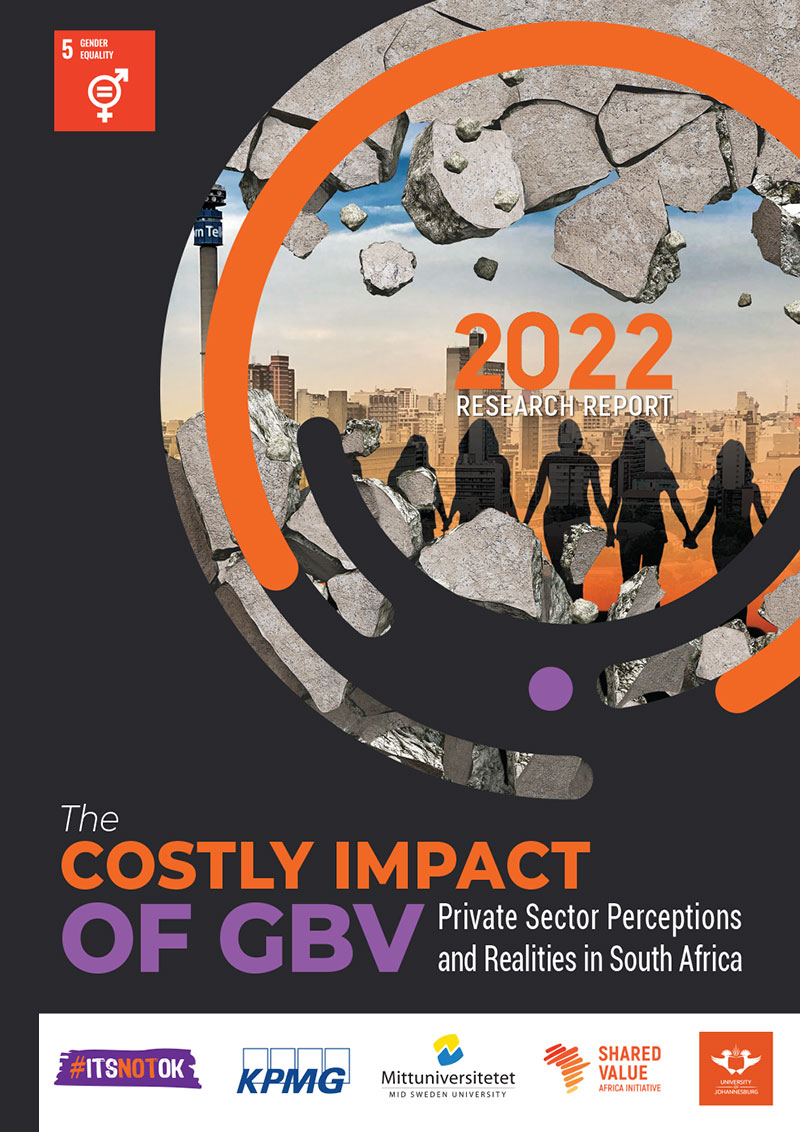REPORT EXTRACT
The purpose of this report, titled The Costly Impact of GBV, is to drive accountability within the private sector, and influence GBV-related system change and policymaking, to contribute towards enabling equal opportunities and empowering women in the workplace.
Globally, gender inequality in the workplace has widened due to Covid-19. Now, more than ever, companies need a comprehensive plan to support and advance women in business, with a focus on accountability and results. By achieving gender equality in the workplace, the entire ecosystem benefits. When the most talented employees (regardless of gender) can rise to the top, with no one left behind, the entire company benefits.
In 2014, KPMG South Africa published research titled Too Costly to Ignore – The Economic Impact of Gender-based Violence in South Africa that described the full economic impact of violence against women as well as the impact on their children.
Our research builds on that and seeks to explore and track the awareness, know-ledge, impact, and opinions about GBV and its prevention in the private sector in South Africa.
Despite growing awareness around the issue, reliable and harmonised data on the understanding, prevalence, and real cost of GBV in the private sector is still hard to find and an under-researched subject.
For the leadership and employee findings we used primary data comprising tran-scripts of interviews with 73 company CEOs, executive directors and leadership, as well as written responses to an online survey questionnaire completed by 2 270 employees.
For the section on the impact of GBV on healthcare costs in South Africa, our estimation was based on a literature study accompanied by secondary research data obtained from the World Bank and the WHO. The key findings in this section of the research are not intended to be exhaustive but are instead considered as important take-outs from this phase of the research.

Readers interested in a more comprehensive discussion of this topic are encouraged to read the full report, which will be published when the next phase of our research is completed towards the end of 2022. The intent of that report will be to present a realistic picture of the economic costs of GBV in South Africa.